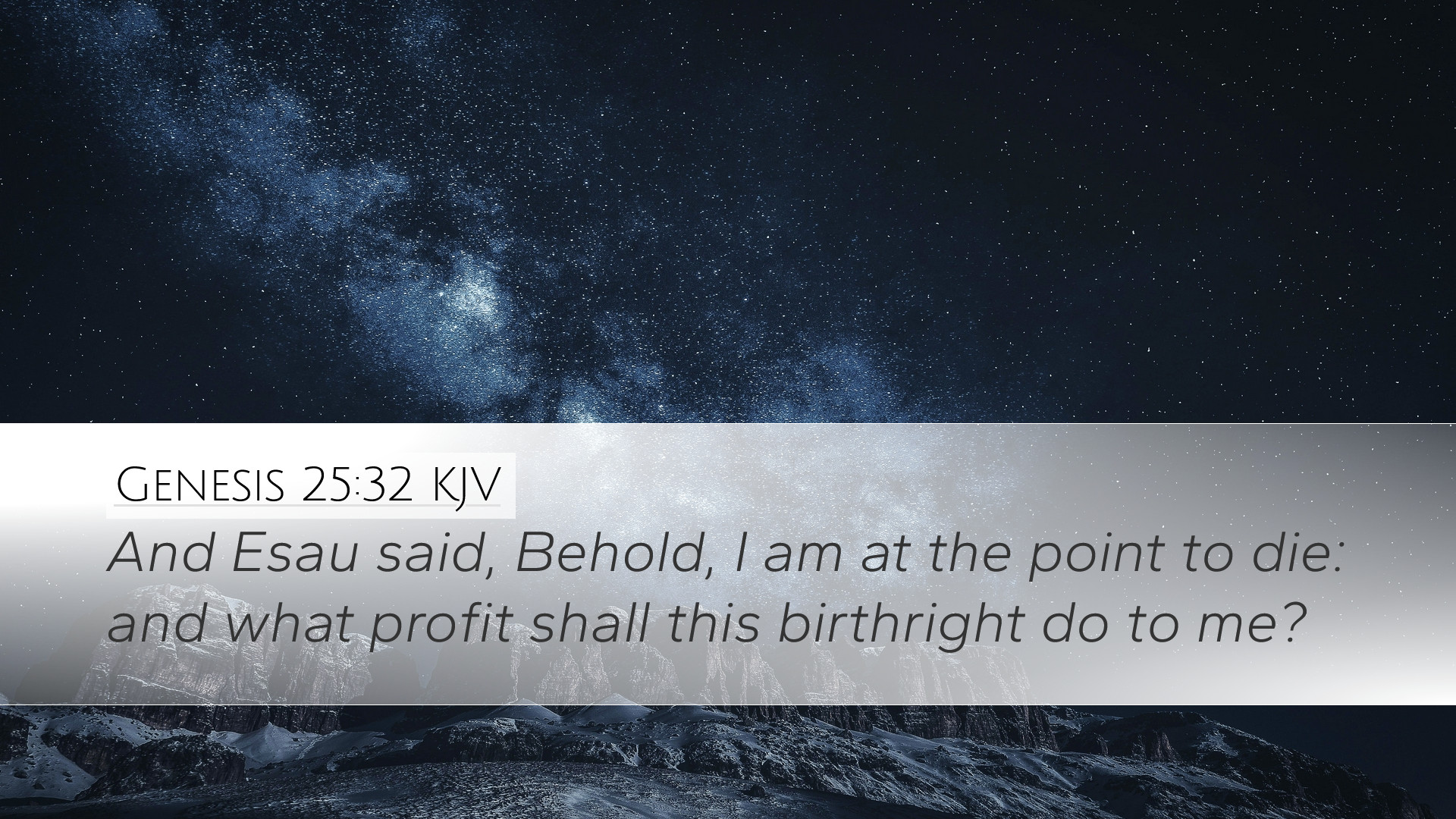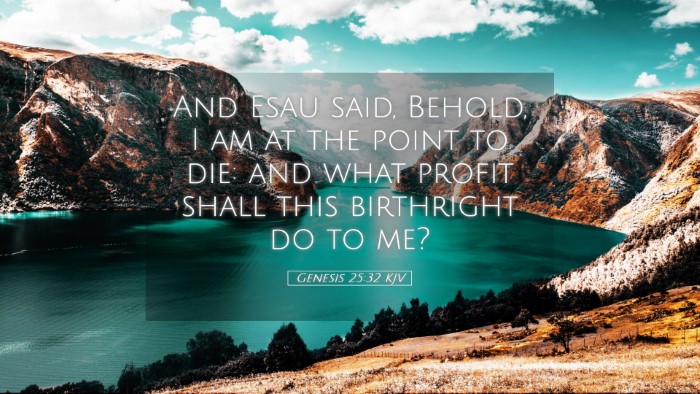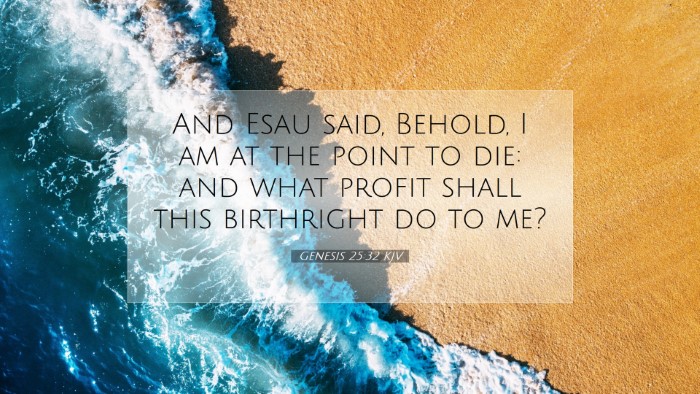Commentary on Genesis 25:32
Verse Reference: Genesis 25:32 - "And Esau said, Behold, I am at the point to die: and what profit shall this birthright do to me?"
Contextual Analysis
Genesis 25 recounts the birth of Esau and Jacob, the two sons of Isaac and Rebekah. This passage signifies a pivotal moment in the life of Esau, as well as a deeper theological implication regarding the nature of birthright and spiritual priorities.
Insights from Matthew Henry
According to Matthew Henry, Esau's exclamation highlights his impulsiveness and shortsightedness. He is on the brink of exhaustion and perceived starvation, prompting him to undervalue his birthright—the inheritance and blessing passed down from his father, Isaac.
Henry emphasizes that birthright was not merely a material inheritance but encapsulated the spiritual leadership of the family and a special standing before God. Esau's perspective shows a disregard for God’s promises and blessings, prioritizing immediate physical needs over spiritual legacy.
Insights from Albert Barnes
Albert Barnes notes that Esau was the elder son, and according to the cultural norm, he was entitled to a double portion of the inheritance. However, in his moment of weakness, he expresses a profound sense of urgency that overshadows the heritage associated with this privilege.
Barnes points out that Esau’s thinking is emblematic of human nature's tendency to act out of immediate desire rather than long-term consequence. His declaration reflects a lack of regard for the divine plan in the covenant lineage, suggesting a tragic folly in prioritizing physical satisfaction over spiritual treasures.
Insights from Adam Clarke
Adam Clarke provides a detailed examination of the cultural significance of the birthright. He highlights that this rite was seen as a spiritual blessing and a divine promise that carried weight far beyond mere material goods. Clarke argues that Esau's statement serves not only to illustrate foolhardiness but reflects a deeper rift in familial and spiritual values during that era.
Clarke further elaborates on the contrast between Jacob and Esau. Jacob, although flawed, sought after the blessings in a spiritual context, suggesting that the larger narrative of Genesis illustrates the notion that God’s chosen path may not always align with human understanding of worthiness and privilege.
Theological Implications
This moment serves as a critical turning point in the Genesis narrative. It raises significant questions about the value we place on spiritual heritage versus immediate gratification. The exchange between Jacob and Esau illustrates a spiritual principle: that which is eternal often collides with the temporal desires of mankind.
- Spiritual Priorities: The birthright signifies God’s covenant promise and should not be cast aside for earthly appetites.
- The Nature of Temptation: Esau succumbs to a moment of need, representing how humanity can fall into temptation by neglecting higher callings.
- Divine Sovereignty: The outcome of this incident demonstrates that God's plans cannot be altered by human folly; His purposes will be fulfilled regardless of human action.
Application for Today
Pastors and theologians can draw upon this narrative to address the contemporary issue of valuing spiritual commitments amidst a culture of instant gratification. Believers today are similarly challenged to assess their priorities and to recognize the weight of eternal significance.
Furthermore, this passage invites reflection on family dynamics, inheritance, and legacy in the context of faith. It encourages a generational transmission of values, emphasizing the necessity for spiritual stewardship.
Conclusion
In summary, Genesis 25:32 poses profound questions surrounding the nature of our priorities. Through the insights of public domain commentaries, we can glean that spiritual inheritance is paramount, and our choices reflect our understanding of God’s priorities versus our temporal desires. The narrative of Esau and Jacob serves as a poignant reminder to cherish and uphold the divine promises in our lives.


